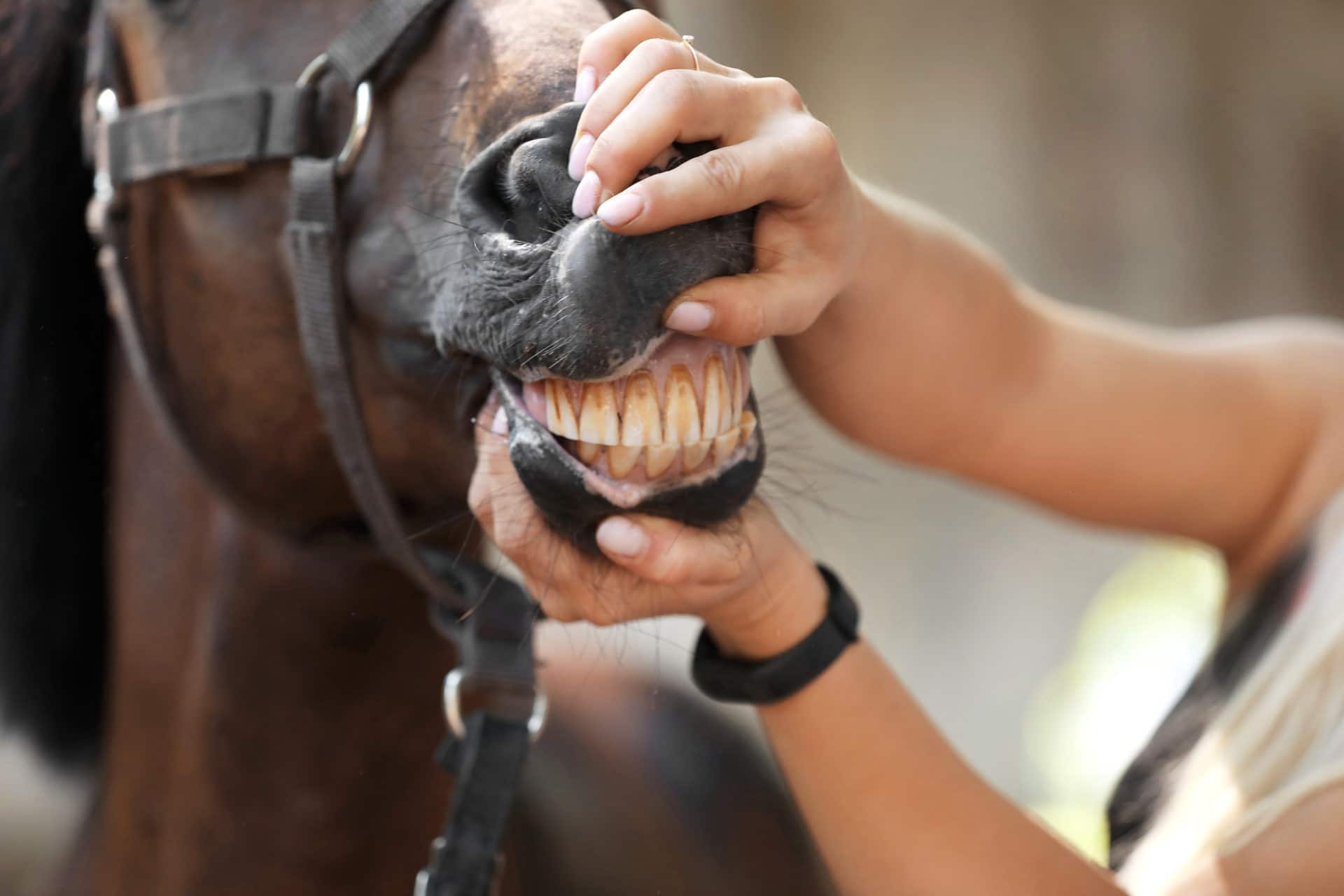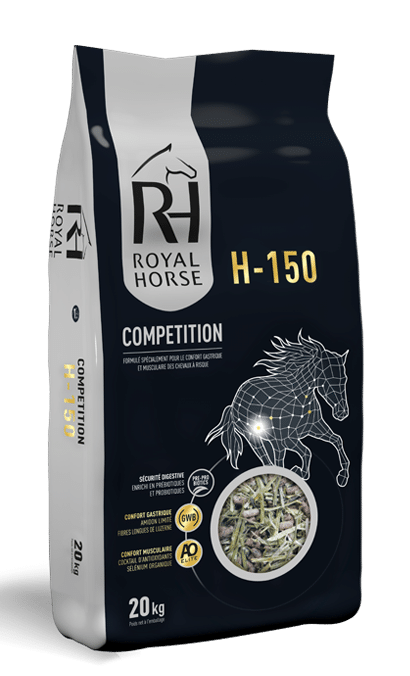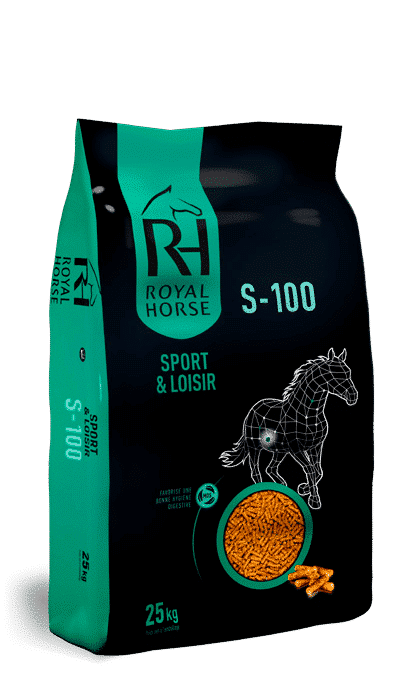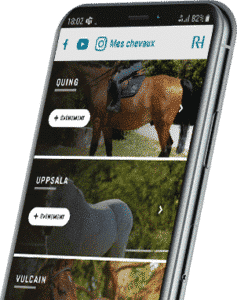The horse is a herbivore that consumes large quantities of forage, and is therefore endowed with an adapted dentition that allows it to pick up and chew its food correctly. However, with the domestication of horses throughout history, their dentition is no longer solicited in the same way, which can become a source of discomfort or injury. A particular and regular attention must therefore be paid to your horse’s teeth. But how to take care of my horse’s teeth?
How are horses’ teeth made up?
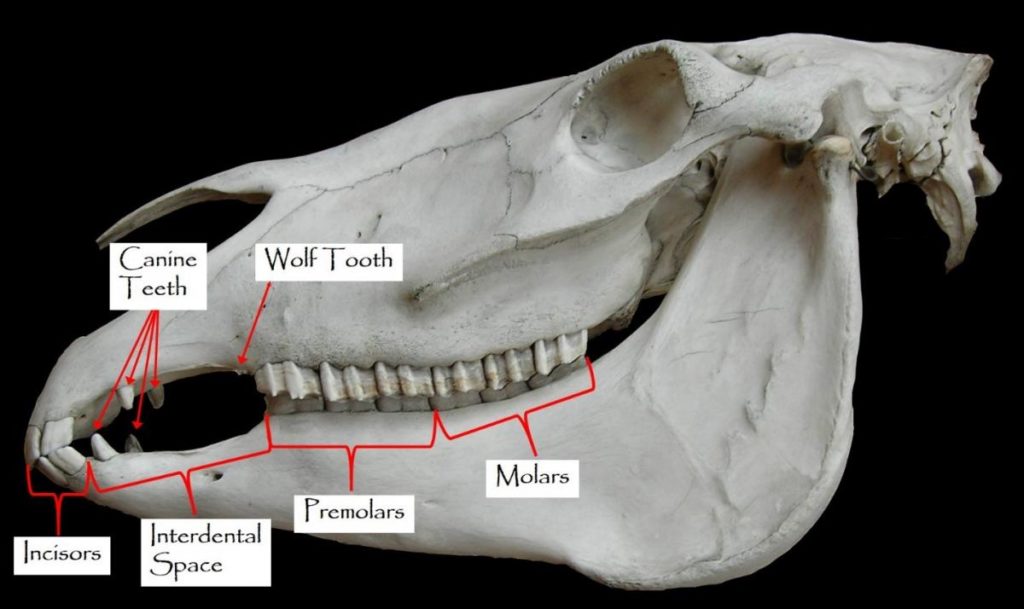
Tooth growth occurs very early in the development of all horses (breeding horses, sport horses, hardy horses, etc.). It starts the first week after birth and continues until the age of five. The final equine dentition consists of 12 incisors for cutting grass, 12 premolars and 12 molars for grinding and chewing food. In males, there are also 4 fangs (more rarely in mares). Some horses may also have wolf teeth, which are remnants of previously existing premolars.
Horses’ teeth grow continuously and are normally filed down naturally by chewing, with the horse spending more than 12 hours a day grazing in its natural state. However, the stall lifestyle and nutrition of horses (concentrated feed and limited forage) do not allow them to reproduce this natural effect, which is why it is necessary to have equine dentists check the horse’s dental tables regularly.
Common dental problems in horses
Some horses may have jaw conformation defects, such as horses that are called “begus”. This means that the upper jaw is further forward than the lower jaw. As a result, some of the horse’s teeth are not aligned between the top and bottom and some teeth do not wear as well as they should, which can lead to sharpness and injury.
On the other hand, wolf’s teeth can also cause great discomfort to horses. When they come into contact with the bit, these teeth cause a lot of pain in the horse’s mouth and, in order to defend themselves, the horse will develop resistance and possibly contractures in several areas of the body. Therefore, if you observe defenses in your horse at work or discomfort in a particular hand, a dental check-up may be necessary before involving an osteopath.
Overbite is also a common problem in horses. Teeth that do not file naturally will eventually become asymmetrical and grow over the horse’s other teeth. These protruding points in the horse’s mouth can then cause open lesions and become very painful. In this case, the equine dentist will perform a rasping procedure that will restore the dental tables and make your horse comfortable again. It is advisable to have the equine dentist come once a year for a check-up because the horse’s teeth can grow at a rate of 2 to 3 mm per year. If your horse is ever frightened by the presence of the veterinarian or the noise of his tools, it may be necessary to have the veterinarian intervene to sedate him.
The impact of aging on the horse’s dentition
As horses age, their dental tables tend to become smoother and their teeth become less anchored and may even fall out. Worn teeth and smooth dental tables can affect the chewing and digestion of horses and cause adverse effects such as poor feed intake, weight loss, etc. It may therefore be necessary to change your horse’s diet. In order to guarantee all the energy needs of your horse while taking into account its weakened dentition, you can use a balanced feed such as Royal Horse H150 or S100 rich in fibers, pre-biotics and minerals (electrolytes). Let the ration soak for a while and use the wet pellets to make a mash and serve it to your horse.
